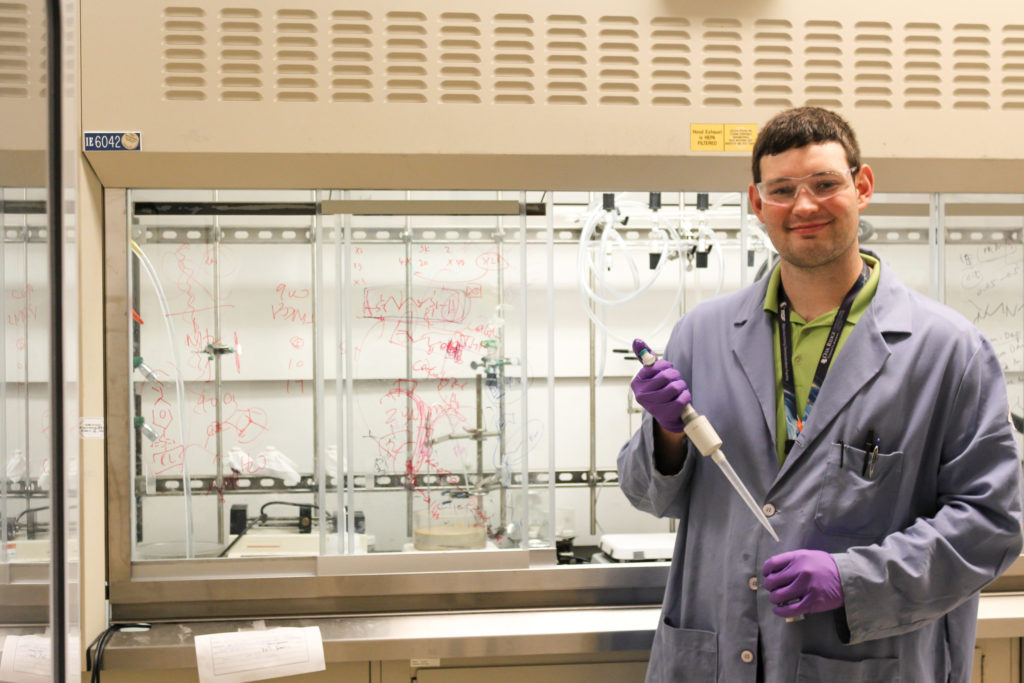
Only one-third of all glass in the United States is recycled annually, and the rest goes to landfills. One reason for this disparity is that glass recycling isn’t economically friendly for many municipalities around the country. Cities that don’t have glass recycling facilities, such as Knoxville, must ship glass off to larger cities to process, resulting in expensive transportation costs and other fees.
Two recent doctoral graduates from the Bredesen Center at the University of Tennessee, Knoxville, Alex Stiles and Dustin Gilmer, are looking to improve outcomes for glass recycling. With the support of the University of Tennessee Research Foundation, they co-founded Vitriform3D to utilize inorganic waste materials – like glass – as recycled feedstocks for value-added polymeric composite products. The team’s patent-pending binder jet technology enables large-scale 3D printing of a wide range of recycled powders, beginning with pulverized glass. This technology provides an avenue to use locally sourced material for 3D printing and the ability to create value-added products in the community.
“Glass is an infinitely recyclable material, so we want to take that waste and upcycle it into new products that give the glass a new life,” said Gilmer. “The real hope is that we’ll be able to help bring back glass recycling to the area and shift the way we think about these recycled materials.”

Stiles and Gilmer are grateful for the support they have received from organizations in the community, including the University of Tennessee Research Foundation. UTRF helped them execute a Research License agreement and walked them through the patent filing process. Stiles and Gilmer value their partnership with UTRF and its mission to help other startups like them succeed.
Recently, Oak Ridge National Laboratory’s Innovation Crossroads program welcomed Stiles and Vitriform3D into Cohort Six. Over the two-year fellowship, Stiles is looking to develop the startup’s first proof-of-concept 3D printer and continue to run tests in various end markets.

“I heard about the program from working with Hicham Ghossein of Endeavor Composites in the same research lab at UT. He’s told me about his experience in the program over the past few years, so we knew it was a unique opportunity,” said Stiles. “Knoxville is the best place to implement our technology. It was a great fit that we were able to get into Innovation Crossroads.”
“We are overjoyed to see another UTRF-affiliated startup participate in the Innovation Crossroads program,” said UTRF Vice President Maha Krishnamurthy. “We’re proud to help another startup using UT-licensed technology stay – and thrive – in Knoxville.”
Stiles and Gilmer didn’t want to leave Knoxville after graduation and are thankful to those who have supported them in their entrepreneurial journey. From the connections they made at ORNL to the networking opportunities available to them with other startups, they believe Knoxville is quickly becoming an epicenter for tech innovation.
“With Innovation Crossroads and UTRF, we see a startup culture developing in Knoxville,” said Stiles. “We want to support any efforts that will help further foster that startup culture and grow the community. There are many resources available to us. I think there is considerable opportunity for other tech startups to make Knoxville their home.”